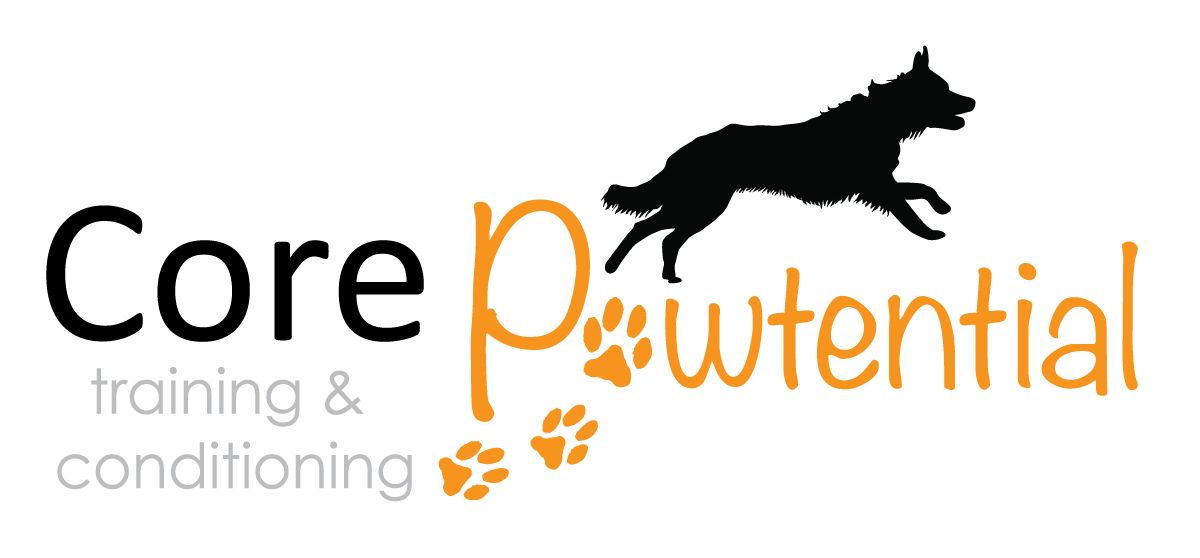Rushing a Dog's Body is Stealing Soundness from Their Future
Even though I know better, I must admit we've all felt it—the desire to do a little more, go a little faster, and maybe, try it a bit sooner.
Maybe my puppy is showing such promise that I cannot help but skip a few foundation steps and jump to more advanced, flashy skills. Perhaps my dog is cleared by my rehab vet/PT to return to training after an injury, and I am eager to make up for lost time. Maybe there is limited time, and I want to tackle that goal before the end of the current trial season.
But...
Is that flashy skill worth my dog's long-term soundness?
Is cleared to return to activity the same as return to sport/work that demands beyond that of normal functioning?
Is trialing multiple classes across multiple days, week after week, worth the physical and mental stress on my dog?
The Young Dog
When you have a talented youngster, the pull to do more, faster, and sooner is tempting. After all, my puppy is drivey, they pick up things so quickly, and they are athletic—why not do more? Why not skip the foundations and go straight to advanced skills? Why practice 5 times when my puppy already gets it the first time?
Because their young bodies are still growing.
Growth plates don't close according to our training schedule or ambitions. Muscles, ligaments, and tendons do not get strong overnight. Strength, body awareness, and flexibility are developed over time, not magically appearing when puppies turn a certain age.
When we rush a young dog, what are we potentially trading early success for? Strains and sprains because the connective tissues are not prepared to handle the stress? Are we trading a title at 2yo for chronic issues and potentially early retirement?
Would you rather have a dog who had their best performance before 3yo, but moves with discomfort upon retirement?
Or would you rather take the time to build solid foundations, so that your dog can have a long, sound career, AND still move like a youngster upon retirement?
The Recovering Dog
Your dog has been cleared to return to activity after surgery, after pregnancy, after that mysterious lameness that finally resolved. Your rehab vet/PT says they are "good to go" and "can return to [sports/work]."
But "cleared" doesn't mean your dog's body is 100% back to the level of physical and mental wellness it had before. Many of us have experienced some sort of injury in our lifetime, and one of the most frustrating things about the recovery process is that recovery is not linear.
The surgical site may be closed, the bone may be healed, and the tissue may be repaired. However, bone, muscles, tendons, and ligaments need additional time to remodel. Strength needs to be rebuilt over time. Compensatory movement may not disappear the moment sutures hold connective tissues back together; discomfort and pain may remain despite good range of motion.
More often than not, re-injury happens because we are doing too much, too soon. When the body is not given sufficient time for recovery, weakness may lead to compensatory patterns, which may lead to re-injury and/or injury elsewhere.
The amount of time needed for a full recovery is a guideline. Return to sports/work within X amount of time does not mean that the dog's body is magically back to their prior level when the clock strikes midnight on that day. The road to recovery is non-linear and it can be extremely frustrating, but the lack of patience can jeopardize the recovery process.
Is your dog's wellness not worth the extra few weeks of rehab and strengthening?
Is that next title worth more than your dog's physical well-being?
The Trialing Dog
Your dog is finally trial-ready and running clean. You want to get that title before the end of the year. You want to meet the qualifications for a big event. So you signed up for multiple classes, multiple days, and back-to-back weekends. You want to train with well-respected instructors. You want to work on advanced skills. So you added more training classes, more workshops, and more seminars because they are available.
Holidays? More training!
Rest days? My dog doesn't need rest days; they love the sport! And we have to train these new skills we learned. There is always more training to do, and more criteria to perfect.
What about your dog? They do not care about Qs, titles, or rankings. They do not care about traveling to that big event or working with that prestigious instructor. Their bodies accumulate the pressure, the stress, and the load, trying to keep up with what we are asking. They keep pushing themselves to please us, because that's what they are bred to do.
The thing about fatigue is that it is not always evident in our performance and working dogs. It may show up as a second slower run time, jumping half an inch short, taking an extra stride before the jump, nicking a bar, or missing a contact.
Fatigue isn't just feeling tired. It's delayed reaction times, degraded motor control, and increased joint stress. A fatigued dog doesn't jump as efficiently, doesn't absorb impact as well, doesn't make the same split-second adjustments that keep them safe. And we often don't see it until it affects performance or accidents happen.
The dogs with the long, sound careers aren't the ones who trial every weekend in every class. They're the ones whose handlers understand that regular conditioning, maintenance bodywork, and strategic rest are part of training, that backing off is sometimes the most performance-enhancing thing you can do.
The Cost of Rushing
When we rush our dogs, we are trading OUR desire and ambition for their well-being.
The dog who debuted at 18 months and got their MACH at 2yo may suffer chronic issues by 5yo. That talented puppy who showed such promise may never reach their full potential. Whereas the dog whose handler took their time may get their MACH at 5yo, but remain sound until their retirement at 11yo.
The dog who has chronic issues or recurring injuries may suffer from chronic pain due to insufficient recovery time. Over time, they may become more careful, hesitant, and worried. We may not only sacrifice their physical wellness, but also their emotional resilience.
When we keep pushing our dogs, we may be ignoring signs of fatigue. When we ignore the slight weight shift, the slight hesitation, and the minor adjustment, we are teaching our dogs that their discomfort does not matter or that their discomfort is normal. We are breaking their trust in us.
Give Our Dogs the Gift of Time
For everyone who has ever lost a dog, there is never enough time with canine companions. If we are lucky, we may get to spend a little over a decade with our dogs. It's natural that we want to make the most of every moment with them. This is especially true considering the amount of time and effort we put into training our performance/working dogs—of course we want to do and accomplish as much as possible.
The greatest gift we can give our beloved dogs is longevity—not just years, but quality years. Years of sound movement. Years of confident, joyful work. Years of waking up without pain. Years with good quality of life.
Rushing our dogs is stealing soundness from their future.
Your dog doesn't know what they're missing when you skip that trial to give them an extra rest week. They don't feel disappointed when you spend another month on foundation work before moving up a level. They don't count the ribbons you didn't get because you prioritized their body over your goals.
But they will feel—every single day—whether they move through the world with comfort and confidence, or with compensation and discomfort.
The choice is ours. And the time to make it is now, before "just this once" becomes a pattern, before "they seem fine" becomes chronic, before we look back and wish we'd slowed down.
Your dog's future self is counting on you to be patient with their present body.


